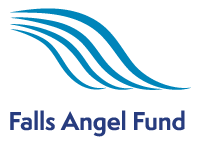“How do I raise money for my business?” This is the number one question that gets asked in the entrepreneurial communities that I am a part of in Sioux Falls. The people that ask this question aren’t large enough to attract interest in any local venture capital firms, can’t get a bank loan and aren’t connected to the few angel investors in the area. These entrepreneurs have to either bootstrap their business (as I did) or they simply can’t get their companies off the ground because they don’t have access to funding.
The Need for Angel Capital
This is a significant problem for Sioux Falls and the surrounding area. If the entrepreneur that will go on to found the next Docutap isn’t able to get funding for their business, they may never be able to go on to build a successful company. They won’t be able to hire employees, rent office space, hire out professional services or purchase equipment and supplies if there’s no growth capital available. If our community wants to continue to birth high-growth companies that create jobs and bring dollars into our economy, we are going to need to make angel investment capital available to entrepreneurs.
 After seeing the need for angel capital in Sioux Falls, I decided to become a champion for Falls Angel Fund and committed to personally invest $150,000 into local start-ups as part of the fund. The South Dakota Enterprise Institute had been working to launch an angel fund in Sioux Falls since 2014, but hadn’t been able to get any traction because it didn’t have anyone to champion the idea and recruit other investors. In early 2016, they decided to take another run at getting Falls Angel Fund off the ground. Another investor and I independently decided to begin recruiting for the fund. Between his efforts and my efforts, we have been able to recruit a total of 18 business owners, entrepreneurs and investors to create a $1 million fund to invest in early-stage companies.
After seeing the need for angel capital in Sioux Falls, I decided to become a champion for Falls Angel Fund and committed to personally invest $150,000 into local start-ups as part of the fund. The South Dakota Enterprise Institute had been working to launch an angel fund in Sioux Falls since 2014, but hadn’t been able to get any traction because it didn’t have anyone to champion the idea and recruit other investors. In early 2016, they decided to take another run at getting Falls Angel Fund off the ground. Another investor and I independently decided to begin recruiting for the fund. Between his efforts and my efforts, we have been able to recruit a total of 18 business owners, entrepreneurs and investors to create a $1 million fund to invest in early-stage companies.
Falls Angel Fund had its opening meeting in April and they asked if I would serve as the chair of the fund. John Henkhaus was named as vice chair and Trevor Nash-Keller was named the due-diligence chair. We will begin hearing pitches from companies interested in receiving funding at our July meeting and already have three companies that have applied to pitch to our group. We intend to invest $50,000 to $100,000 at a time in 10-15 companies. Our fund will be making investments over the course of two to four years.
Selfish Motives
While my region’s economic development is one of the major reasons I decided to take an active role in Falls Angel Fund, there are certainly some selfish motives too. I’ve been wanting to learn more about private equity for the last several years as a potential second career. Since there’s no such thing as private equity school, I figured participating in the fund would be a great way to get an education in angel investing. While I’ve still got a lot to learn, I truly believe participating in Falls Angel Fund will be a great way to dip my toe into the world of venture capital.
Putting an angel fund together is also an excellent professional networking opportunity. Everyone that is participating in an angel fund has to be an accredited investor, which means that they earn at least $200,000 per year or have $1 million in assets. There aren’t many networking opportunities where you know that you’re in a room full of millionaires, but putting together an angel group is one of them. I did know some of the members of the fund before we launched it, but have also met several great people already as a result of participating in the fund. I also look forward to networking with the owners of the many companies that will be pitching our fund over the next few years.
Finally, there’s the opportunity for outsized investment returns. Angel investing is a high-risk, high-return investment. Many of the companies that we invest in will fail and go out of business. Some will hit a single or a double and go on to be sustainable businesses. The hope is that there will be one or two companies that will do exceedingly well and cover all of the other companies that fail and then some. While I have no idea what the actual returns of Falls Angel Fund will be, many angel investors target an annual rate of return of 25% on their money.
Looking for Angel Capital?
Our fund will hold meetings every other month beginning in July 2016 and we can hear pitches from up to two companies per meeting. If you would like to apply to pitch your business to Falls Angel Fund or any of the other South Dakota angel funds managed by the Enterprise Institute, complete the inquiry form located on the Enterprise Institute website.
